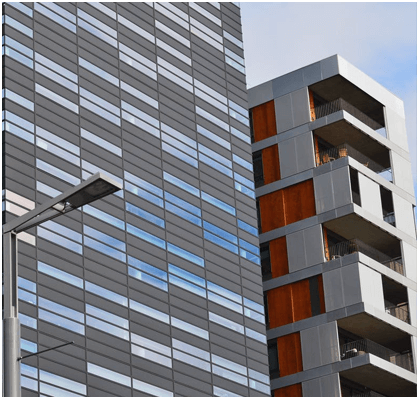Investing In Retail Space – Pros & Cons
The Different Pros And Cons To Investing In Retail Space

What Are The Pros Of Investing In Retail Space?
According to research, the average rental return for residential properties across the United States is between 3% and 5%. This can be considered useful, but it is in no way more beneficial than the gross rental return of between 9% and 12% for commercial real estate properties.
2. Longer Leases
Dependent on the state you are in, the average residential tenancy contract will have a turnover between six and 12 months. A commercial tenancy, however, will present with an average tenant turnover of between three and ten years. Furthermore, tenants tend to stay longer in a commercial property, particularly when they have invested capital into customizing the retail space. This is one of the reasons why you should allow a commercial space tenant leeway when personalizing the property with their own capital.
3. Smaller Deposits
Commercial real estate, particularly retail spaces, is typically lower priced as compared to the average residential property. This means that you will only need to pay a small capital outlay to obtain one of these properties. For example, a small retail space can cost as little as $90,000 as opposed to a small apartment at $300,000. By investing in a commercial property soon, you will be able to enter the real estate market soon and save for potential resident property investments.
4. No Rates And Other Expenses
Contrary to residential properties where the landlord is liable for paying property rates, such as water and body corporate, this is not the case with commercial properties. As a commercial tenant, he or she will be responsible for these expenses.
What Are The Cons To Investing In Real Estate?
Despite the above benefits encouraging investing in retail estate, there are potential risks that you need to be aware of before making any commitments.
1. Commercial Real Estate Is Sensitive To Economic Conditions
When the economy is strong and “healthy”, real estate and retail business with flourish. This means that there is a great demand for commercial properties and the market value of retail spaces will rise. However, when there is an economic downturn, the demand for these types of premises will fall and a reverse in income will be experienced. Residential properties do not present with this degree of sensitivity to a company’s economic climate.
2. It Is More Difficult To Find Tenants
Finding tenants may seem like a simple task, but this is not the case for commercial real estate. At 3CRE, we understand the unique challenges facing retail properties in Columbus Ohio, and beyond, including the difficulty of finding long-term tenants. Our team of experienced advisors can help you navigate the commercial real estate in in columbus ohio market and find the right tenant to fill your vacancies. During this time you will be responsible for all the costs associated with the property, as well as any upkeep needed to maintain the structure.
3. Changes In Area Can Be Detrimental To The Property
While it is possible for changes in the surrounding area’s infrastructure to boost the value of a property and attract investment, it is also possible for changes to swing the other way. If the area becomes less desirable, the property could fall in value and may experience long vacancies due to the positioning of the property.
So, Commercial Or Residential?
Taking all the information above into account, it can be seen that investing in retail space as a commercial building can be highly beneficial. To ensure you are making a good investment, it is important to take these into account and see if they meet your needs. For any kind of assistance in commercial real estate, contact us!


